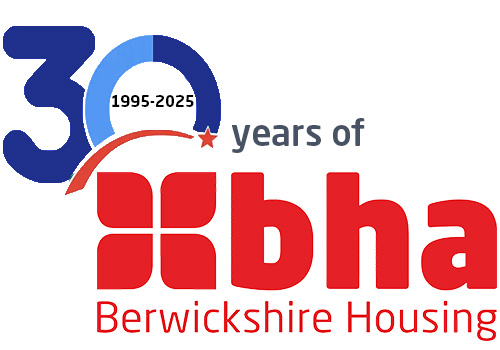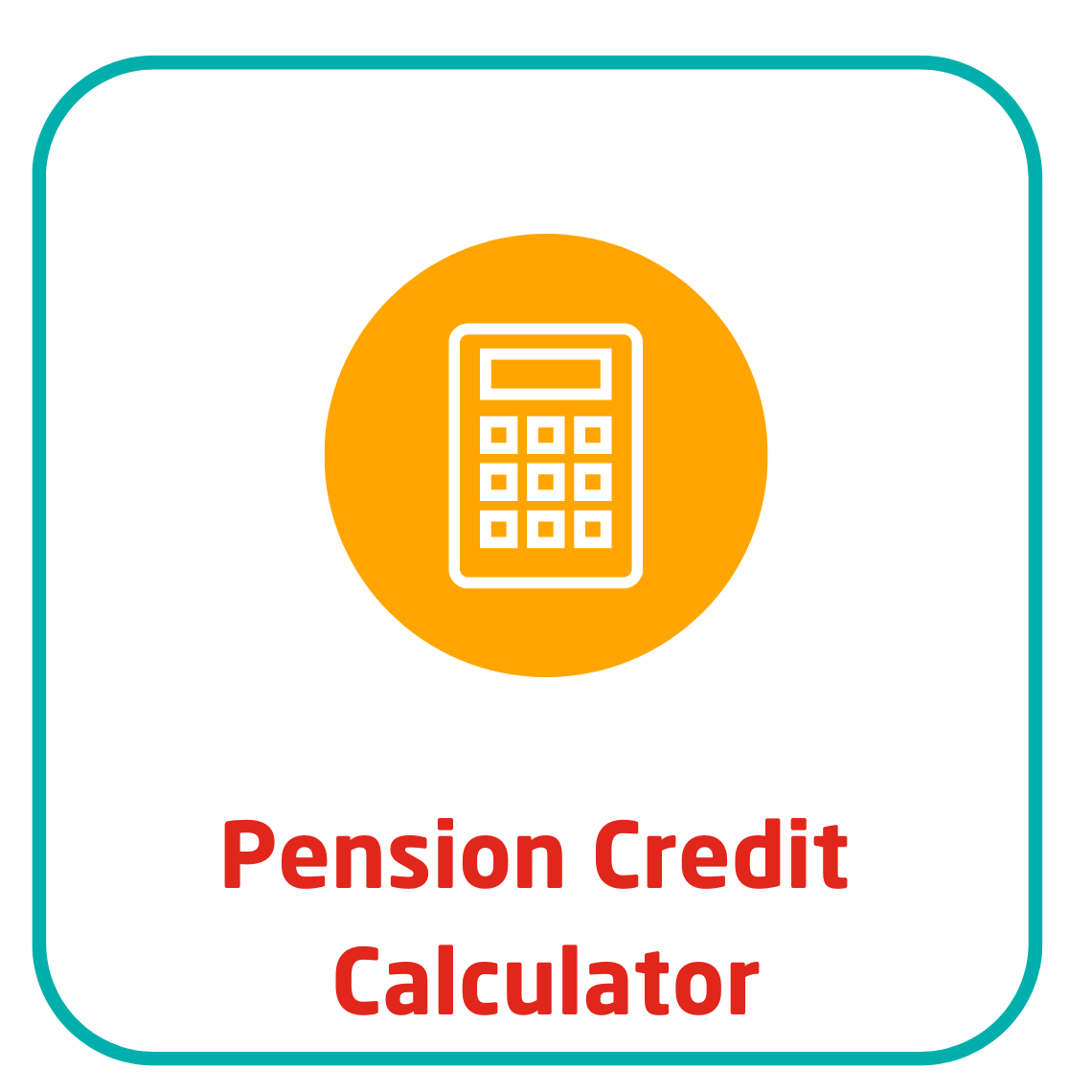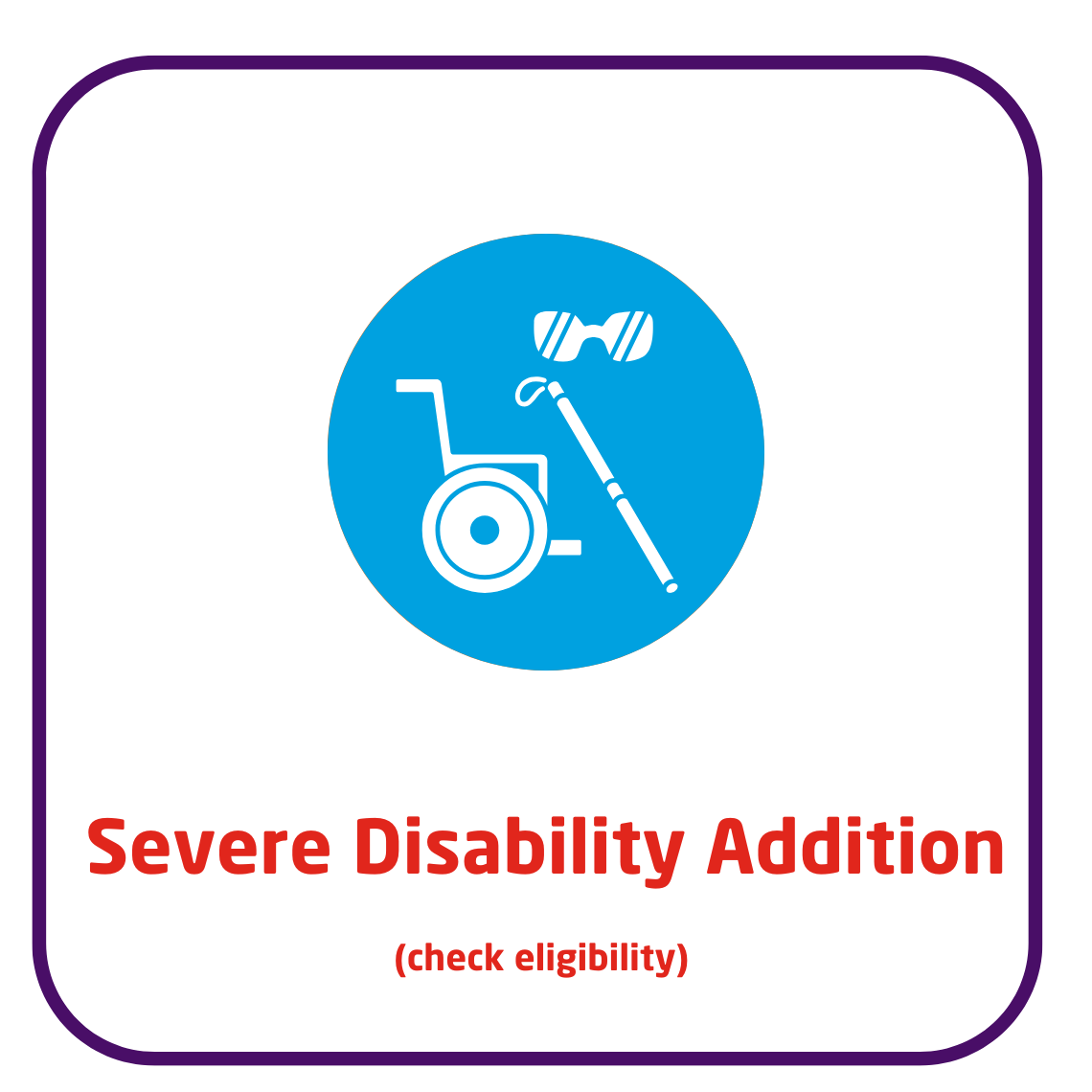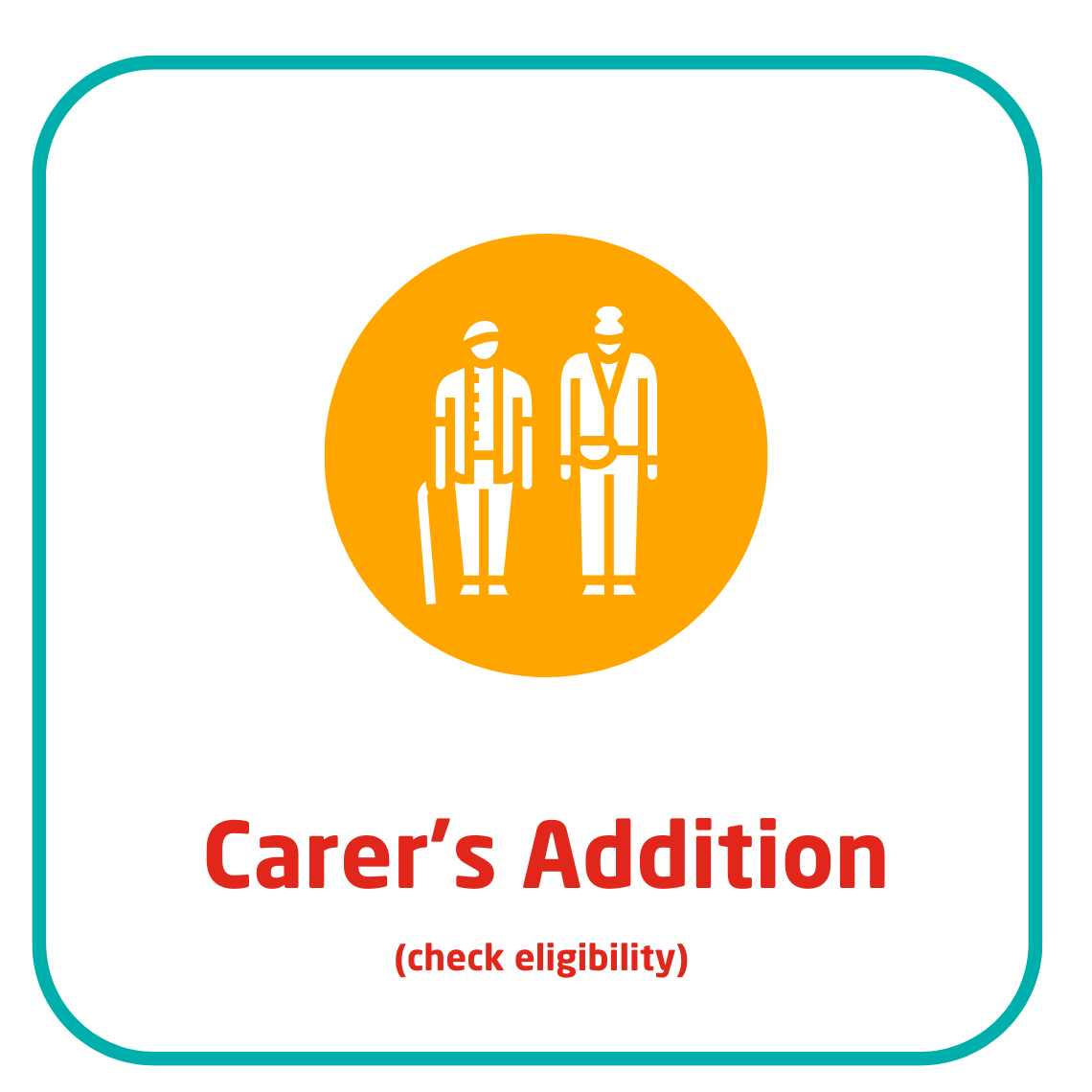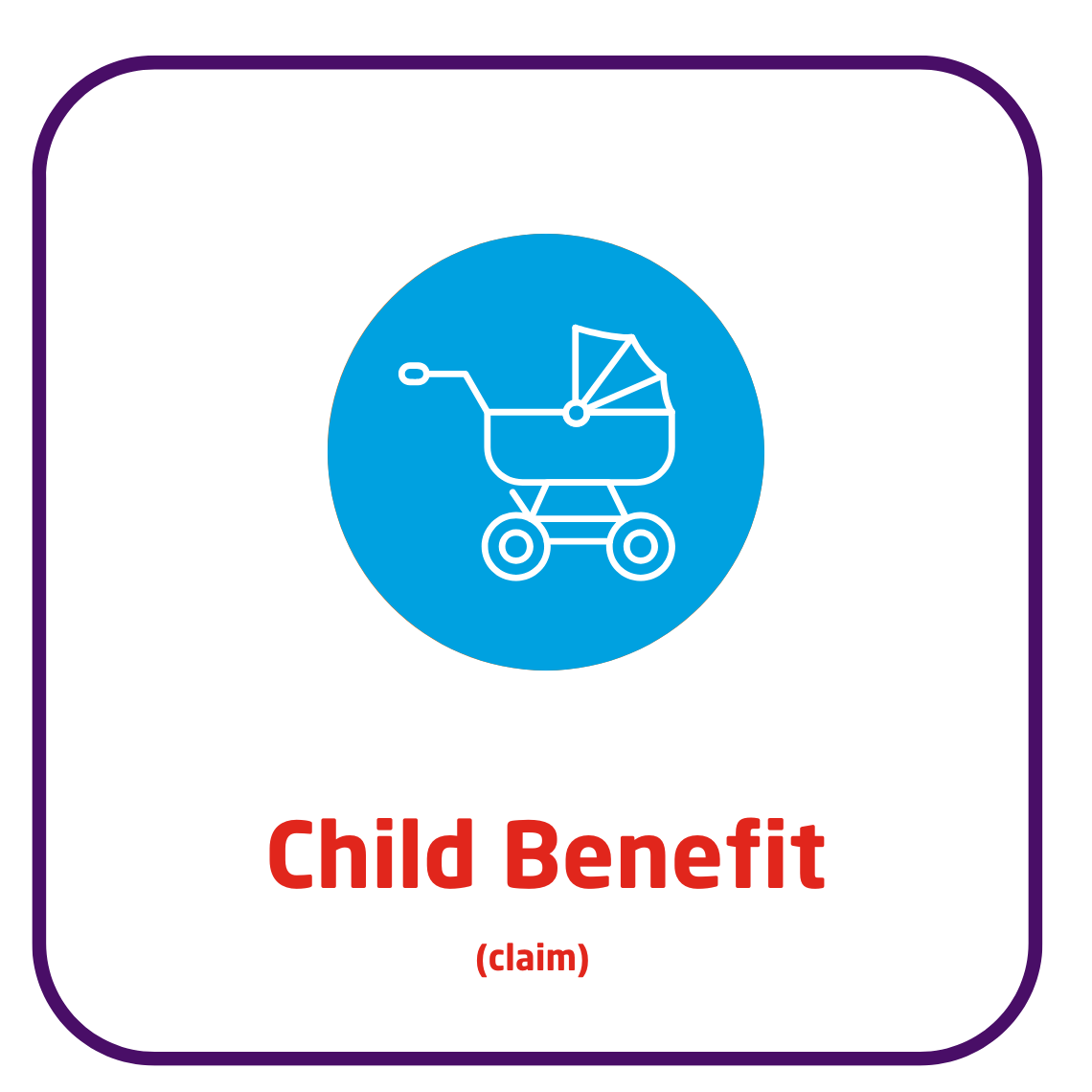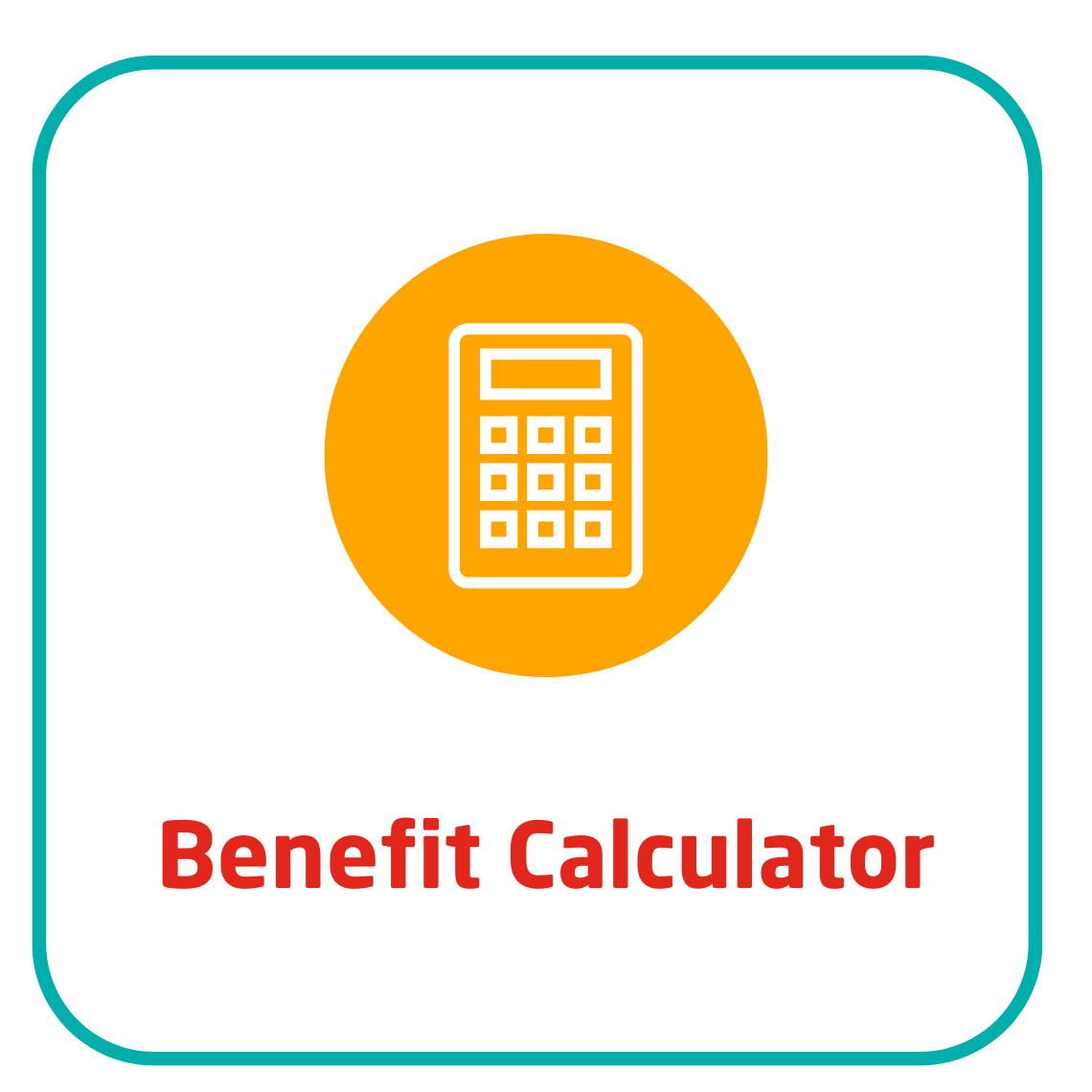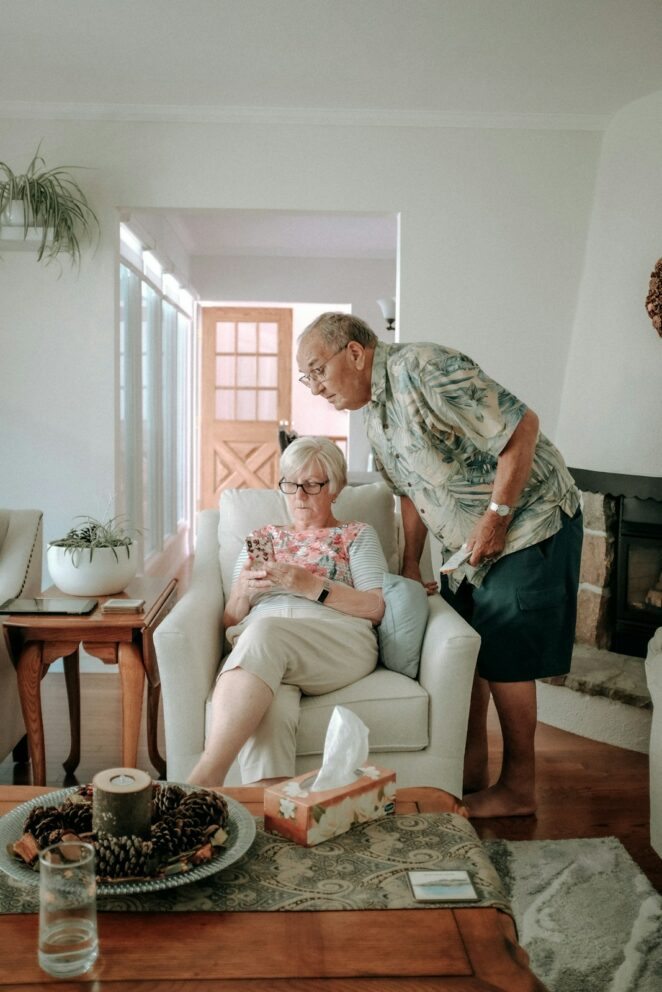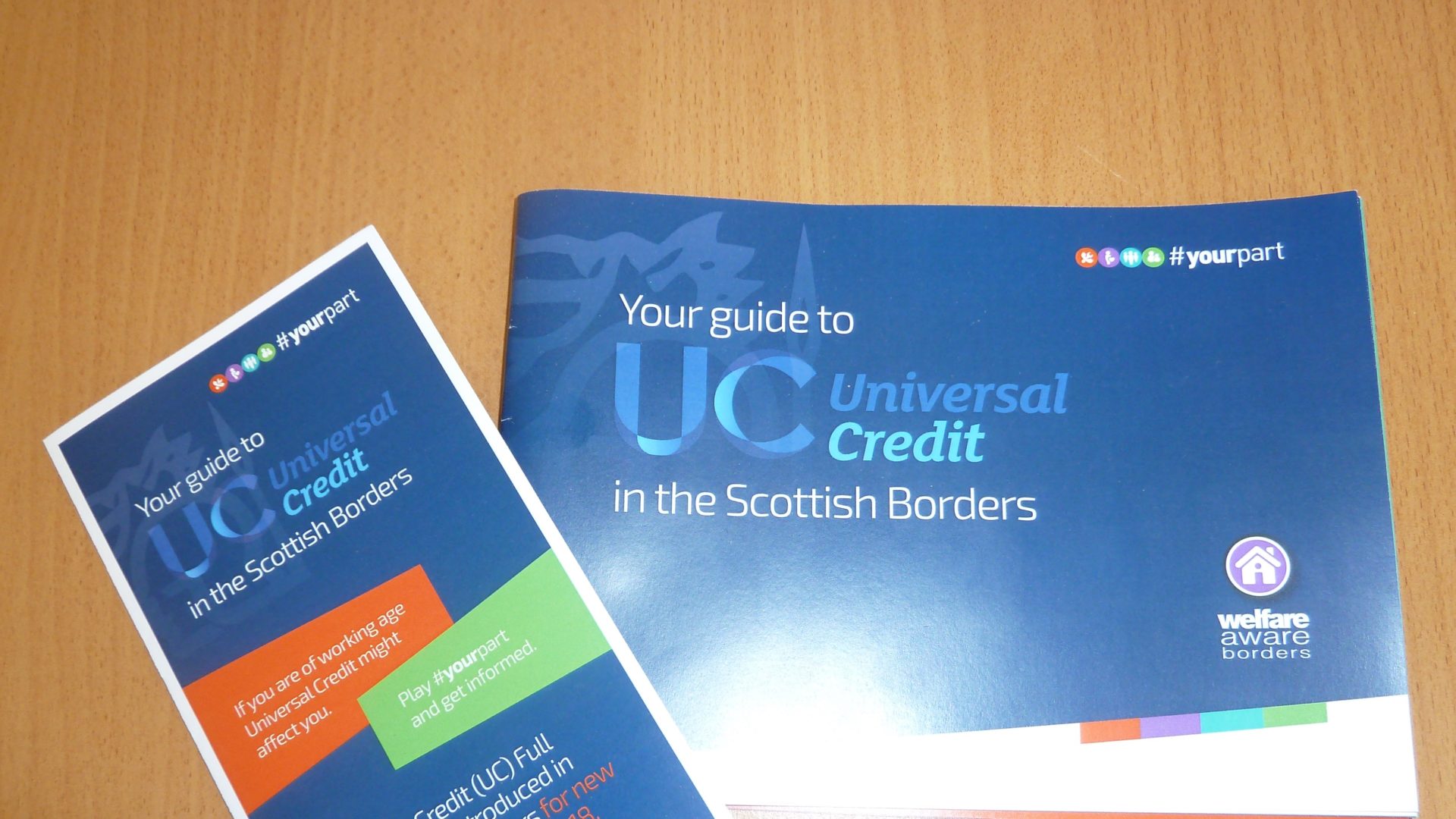
Benefits help
Scottish Welfare Fund
Community Care Grants and Crisis Grants are available through the Scottish Welfare Fund at Scottish Borders Council. These can help to provide a safety net in an emergency, or to support independent living.
More information on applying to the Scottish Welfare Fund can be found on the Scottish Borders Council website
Welfare reform consists of many different elements and you can get advice on each element by clicking on the links below:
Universal Credit is a single payment for working age people and replaces Income Support, income based Jobseeker’s Allowance, income related Employment and Support Allowance, Housing Benefit, Tax Credits and Budgeting Loans.
Who is eligible to claim Universal Credit?
To claim Universal Credit you will need to:
- be 18 or over (generally)
- be under pension age
- not be in education
- be in Great Britain
- not be subject to immigration control
- have accepted a claimant commitment
If you have a partner you will make a joint claim for Universal Credit. If one of you is over state pension credit age or in full-time education both of you will still have to claim Universal Credit unless either of you was already receiving state pension credit when Universal Credit was introduced.
Most claims will be made online at www.gov.uk/apply-universal-credit or, if you need help, by contacting the Universal Credit helpline on 0800 328 5644.
How are you paid?
If you live in Scotland
You can get paid once or twice a month.
If you’re making a new claim, you’ll get a notification about how often you want to be paid. You get this after your first payment.
If you’re already getting Universal Credit and have not had a notification, you can ask your work coach if you can be paid twice a month.
When you’re paid twice a month your first payment will be for a full month. You’ll get the first half of your second month’s payment a month after this. The second half will be paid 15 days later. This means there will be about a month and a half between your first payment and the full amount for your second month.
After this, you’ll be paid twice a month.
You can get more information here Universal Credit: What Universal Credit is – GOV.UK (www.gov.uk)
From April 2013 if you have one or more ‘spare’ bedrooms in your property the maximum rent on which you can claim Housing Benefit may be reduced by:
- 14% if you have one spare bedroom or
- 25% if you have two or more spare bedrooms
The rules allow one bedroom for:
- Each adult or couple
- Two children of the same sex under the age of 16
- Two children under the age of 10 regardless of sex
- Any other child
- A carer, who does not normally live with you, if someone in the household needs overnight care
- Approved foster carers – a reduction for under-occupation will not be made in respect of one additional bedroom for the foster child or children
- Parents of armed forces personnel – adult children who are in the armed forces but who continue to live with parents, will be treated as continuing to live at home when deployed on operations
Exceptions
The rules will not apply to households in the following situations:
- Shared ownership – the size criteria rules will not apply where the claimant part owns their property
- Pension age – any claimant over qualifying age for state pension credit or with a partner over that age will be exempt from the size criteria rules
- Temporary accommodation – any claimant accepted as homeless under Homelessness Legislation and placed in temporary accommodation by the Local Authority will be exempt from the size criteria rules
- Supported ‘exempt’ accommodation – claimants in certain types of supported accommodation will be exempt from the size criteria rules
Following a recent Court of Appeal judgement those whose children are said to be unable to share a bedroom because of severe disabilities will be able to claim Housing Benefit for an extra room.
The Local Authority will assess the individual circumstances of the claimant and their family and decide whether it is inappropriate for the children to share a room. This will include considering the amount of care needed during the night, and the extent and regularity of disturbance to the sleep of the child who would share the bedroom.
If you have a child who cannot share a bedroom with a brother or sister you should contact your GP, Social Work or Support Worker and ask for evidence to support your claim. This could be a letter stating the nature of the child’s disability including the amount of care the child needs during the night and also the impact on another child who would be expected to share a bedroom.
Protection
There will be some protection from these rules in the following cases:
- 13 week protection where the tenant could previously afford the rent and Housing Benefit has not been claimed in the last 52 weeks
- For up to 12 months where certain members of the household have died
What next?
The Local Authority will write out to all our tenants who are under-occupying their home and in receipt of Housing Benefit. If you do not agree with their assessment, you should contact them immediately. Once you have received a letter from Scottish Borders Council, you will be visited by a member of our team who will discuss your options and how we can help. If you did not get a letter and you think the under-occupation rules apply to you please contact either the Scottish Borders Council or our Financial Inclusion Team immediately.
From late summer 2013, there will be a cap on the amount of benefits you can receive. The Government will add up the amount of money you get from Housing Benefit, Income Support, Jobseeker’s Allowance, Employment and Support Allowance, Child Tax Credits, Child Benefit, and Carer’s Allowance. If the total comes to more than the maximum amount allowed, your Housing Benefit payments will be reduced.
The maximum amount of benefit you will be able to receive from the date that this is implemented will be:
- £384.62 per week for single parents
- £384.62 per week for couples with or without children
- £257.69 per week for single people without children
The Benefit Cap will not apply if you get Pension Credit or Working Tax Credit or if a member of your household claims Disability Living Allowance, Personal Independence Payment, Attendance Allowance, Constant Attendance Allowance, the support element of Employment and Support Allowance, Industrial Injuries Benefit or is a war widow.
Claimants who have been in employment for 52 weeks or more when they claim benefit will be exempt from the cap for a grace period of up to 39 weeks.
Pension Credit - What you need to know
There are 2 parts to Pension Credit. They’re called:
- Guarantee Credit
- Savings Credit
You might get one or both parts.
Guarantee Credit tops up your weekly income to a minimum amount.
Savings Credit is a small top-up for people who have a modest amount of income or savings. It’s only available if you reached State Pension age before 6 April 2016.
If you think you won’t get much Pension Credit, it could still be worth applying. If you get Pension Credit, you can usually get other benefits like a Winter Heating Payment, a Pension Age Winter Heating Payment or a Council Tax Reduction.
The Department for Work and Pensions are stopping some people’s tax credits and telling them to claim Pension Credit instead.
If you get a letter telling you to claim Pension Credit by a certain deadline, this is a ‘tax credit closure notice’ (TCCN). You should claim Pension Credit by the deadline in the notice. Your tax credits will stop after the deadline.
You might miss out on some money if you apply after the deadline.
To claim Pension Credit you must:
- have reached State Pension age
- not have too much income or savings
- live in the UK
You can still be working, as long as your income isn’t too high.
Unlike the State Pension, you don’t need a national insurance record.
You can only get Pension Credit if your immigration status lets you claim public funds. In some situations you also need a ‘right to reside’.
You can claim public funds if you have any of the following:
- British or Irish citizenship
- settled status from the EU Settlement Scheme
- indefinite leave – unless you came to the UK on an adult dependent relative visa
- refugee status or humanitarian protection
- right of abode
If you have pre-settled status from the EU Settlement Scheme, you can claim public funds – but you also need to show you have a right to reside to get Pension Credit. Check if you have a right to reside.
If you’ve applied to the EU Settlement Scheme and you’re waiting for a decision, you can claim public funds – but you also need to show you have a right to reside to get Pension Credit. Check if you have a right to reside.
If you have any other immigration status, check if your immigration status lets you claim public funds.
You’ll need to give evidence to show the UK, Ireland, Channel Islands or Isle of Man is your main home. This is known as being ‘habitually resident’. You have to do this even if you’re a British citizen.
If you’re already getting Pension Credit, you’ll keep getting it unless your circumstances change.
If your partner isn’t over State Pension age, you can’t usually make a new claim for Pension Credit.
You can still make a new claim for Pension Credit if both of the following apply:
- you reached State Pension age before 15 May 2019
- you’ve been claiming Housing Benefit since before 15 May 2019
Otherwise you’ll usually need to claim Universal Credit instead.
You should gather everything you can about your weekly income before applying.
Your weekly income could include:
- money from a private pension
- money you get from the State Pension
- most earnings from an employer or from being self-employed – your earnings will be worked out as an average if they go up and down over the year
- benefits such as JSA or ESA
You’ll also need to consider what savings and investments you have. This could include:
- property you own except the home you live in
- shares and other investments
- money held in bank or savings accounts
Any savings or investments over £10,000 will affect the amount of Pension Credit you get. You’ll be treated as having £1 per week of income for every £500 above £10,000.
If your weekly income is below £218.15 then Guarantee Credit will top you up to that amount.
If you’re claiming as a couple and your joint weekly income is below £332.95 it will be topped up to that amount.
If you’re claiming as a couple you’ll need the same information about your partner’s income.
Your income can be higher than £218.15 or £332.95 if you qualify for extra amounts such as the severe disability or carer’s addition. Your income can also be higher if you’re paying a mortgage.
You might be able to get extra money if you get other benefits or you’re responsible for a child.
If you get other benefits, such as Carer Support Payment, Carer’s Allowance, Disability Living Allowance, Personal Independence Payment, Adult Disability Payment or Attendance Allowance, your weekly Guarantee Credit amount can go over the minimum income threshold of £218.15.
If you’re eligible, you can receive an extra amount for severe disability of £81.50 a week. Check if you’re eligible for the severe disability addition on GOV.UK.
The extra amount if you’re a carer is £45.60. You’ll get this if you or your partner get Carer Support Payment or Carer’s Allowance. You’ll also get the extra amount if you or your partner have claimed for either Carer Support Payment or Carer’s Allowance and meet its conditions. Check if you’re eligible for the carer’s addition on GOV.UK.
You’ll need to have details of any benefits you receive if you use the Pension Credit calculator on GOV.UK.
If you’re responsible for a child you can get an extra amount for them, as long as you’re not already getting child tax credits. You might also be able to claim child benefit.
Before applying you’ll need to gather the personal information the Pension Service need.
When you call them you’ll need to answer questions about your income and savings. Make sure you have:
- your National Insurance number – you can find your National Insurance number or apply for one on GOV.UK
- your bank, building society or Post Office card account details
- details of how much money you have coming in each week, such as from a pension
- details of any savings and investments you have
- your housing costs, such as rent or mortgage repayments
- information about any benefit payments you receive
If you live with a partner you’ll need to give the Pension Service the same information about them.
You’ll also need to provide information of anyone else living with you such as details about any benefits they’re receiving. You won’t need to give details about their income.
You can only apply online if:
- you’ve already claimed your State Pension
- you’re not living with someone under 16 or between 16 and 19 in full-time education
Make sure you have the information you need before starting your online application. You’ll have to complete your application in one sitting – you won’t be able to save and come back to it later.
If you can’t apply online, you can claim by calling the Pension Service and telling them you want to claim Pension Credit.
Pension Credit claim line
Telephone: 0800 99 1234
Textphone: 0800 169 0133
Relay UK – if you can’t hear or speak on the phone, you can type what you want to say: 18001 then 0800 99 1234
You can use Relay UK with an app or a textphone. There’s no extra charge to use it. Find out how to use Relay UK on the Relay UK website.
Video relay – if you use British Sign Language (BSL).
You can find out how to use video relay on YouTube.
Monday to Friday, 8am to 6pm
Calls are free from mobiles and landlines.
Ask for your Pension Credit to be backdated when you apply.
Pension Credit can be backdated for up to 3 months before you apply if you were eligible during that time. This means you’ll get up to 3 months of Pension Credit included in your first payment.
If the Pension Service have all the information they need they can sometimes make a decision on your claim and put payments in place straight away. If they need more information they’ll send you a form to fill in.
